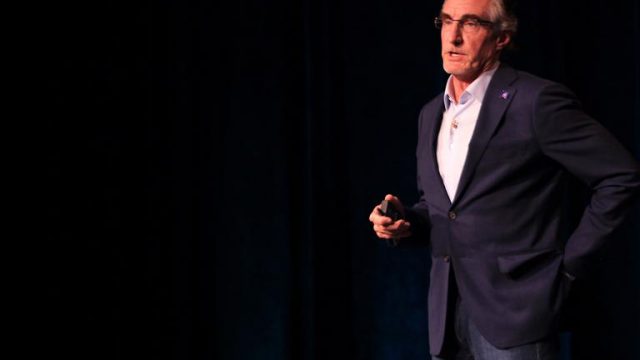North Dakota Needs Workers, but Those Workers Need Shakespeare

Last year I was invited to participate in a campus dialogue event at Minot State University.
The event was titled, “Should We Chuck Shakespeare Out of the Tower? Considering the Role of the Liberal Arts in our 21st Century Educational Climate,” a topic inspired by the push toward career-driven higher education.
The event organizers were expecting me to be someone who wanted to “chuck” Shakespeare, but I am not. My argument was about the importance of Shakespeare, and liberal arts generally, even in curricula organized around students getting jobs.
I was thinking about this event while reading reporter Sydney Mook’s article over the weekend detailing Governor Doug Burgum, and North Dakota University System Chancellor Mark Hagerott, calling for “for focus on workforce development.”
[mks_pullquote align=”right” width=”300″ size=”24″ bg_color=”#ffffff” txt_color=”#000000″]Our society will best be served by our institutions, from our K-12 schools to our universities, turning out well-rounded individuals, and that means grounding their education in the humanities as well as science and mathematics.[/mks_pullquote]
I understand the genesis for this push. Higher education is hugely expensive, with a cost curve that has been aimed sharply upward for a few generations now, so why wouldn’t students and their supporters be focused on turning that investment in education into bigger paychecks?
It’s nice to talk about education for education’s sake, and I’m certainly a believer in people dedicating themselves to a lifetime of both formal and informal learning, but for most students accessing higher education means taking on debt. How do you ask people to take on thousands and thousands of dollars of debt to be unconcerned with the pecuniary value of what they’re purchasing?
Where both sides of this debate – the workforce development advocates and the Shakespeare supporters – are making a mistake is in assuming this is a binary choice.
At the most pragmatic level, the next generations of workers need language and writing skills to complement technical learning. Beyond that, these workers need culture so help them understand the place of what they’re working on in our society.
Think of North Dakota’s emerging UAS or “drone” industry. There are a lot of very practical and very exciting applications for that technology, but what are the social considerations of drones proliferating in our day to day lives? In Mook’s article Burgum references artificial intelligence, another marvel of human advancement, but again something fraught with implications for our privacy and personal autonomy.
Might it be beneficial to expose the students who will one day work in these industries to the works of people like George Orwell or Isaac Asimov?
Science fiction, specifically, is a good example of how practical technical and scientific endeavor can be complimented by literature.
Arthur C. Clarke collaborated with NASA. Robert Heinlein was a major influence on Elon Musk. More recently, Andy Weir’s run-away success with his book The Martian may have helped saved the space program and put the United States on a path to a manned exploration of Mars.
I think you understand my point, though science fiction is just one example of the value of the humanities to scientific endeavor.
We often portray technological advancement as scary. Dystopia is seemingly the preferred theme for modern art and literature about humanity’s future. Our news headlines are full of paranoia about smart speakers and smart phones and social media. The fears, though hyped beyond reason at times, are not invalid.
How can temper humanity’s madness for technological advancement? Perhaps we can let Shakespeare provide some method for it?
He did coin the term “method in the madness” after all. It’s from Hamlet.
Our society will best be served by our institutions, from our K-12 schools to our universities, turning out well-rounded individuals, and that means grounding their education in the humanities as well as science and mathematics.
We eschew this balance at our peril.




